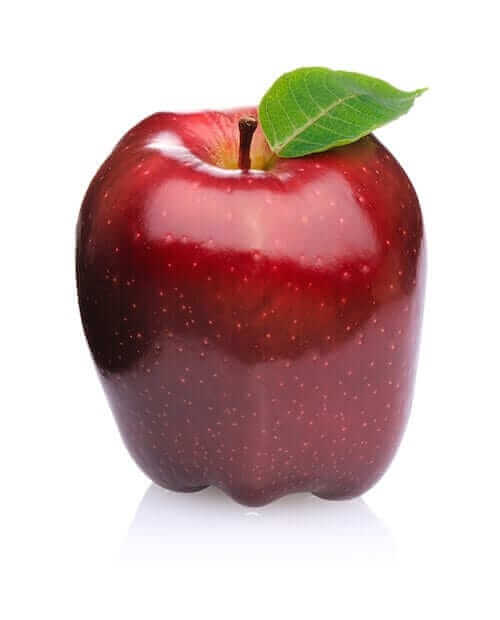Apple nutrition
The apple is the only fruit deemed nutritious enough to keep the doctor away. This is because apple nutrition provides you with the vitamins, minerals and fiber needed to keep your body functioning at its best. As one of the most popular foods in the world, it is eaten raw and used as a flavoring…
This post may contain affiliate links. Please read our disclosure policy.
The apple is the only fruit deemed nutritious enough to keep the doctor away. This is because apple nutrition provides you with the vitamins, minerals and fiber needed to keep your body functioning at its best. As one of the most popular foods in the world, it is eaten raw and used as a flavoring agent in many recipes. Tasty and fresh, it is one fruit you can effortlessly add to your healthy diet.
Apple Nutrition Information
What makes apples so healthy? Firstly, they are low in calories. An average-sized apple contains less than 100 calories a serving. Secondly, it is loaded with dietary fiber. Fiber is the substance that helps break down the food you eat. It also helps to fill up you up, delaying hunger for longer. The third important reason is that it provides your body with plenty of vitamins and minerals.
Vitamins found in apples include vitamin B-complex and vitamin C. Vitamin B is responsible for putting to work the enzymes necessary to metabolism. Without it, many systems of the body might start to show signs of deterioration. Vitamin C is a natural disease-fighter and facilitates the healing process by ridding your body of free radicals.
Another advantage of apple nutrition is the large amount of antioxidants you can receive by eating a single apple every day. Antioxidants are best known for their cleansing and restoration qualities. On top of cleaning the body of free radicals, these antioxidants also have a profound, positive effect on your wellbeing.
Apple Nutrition and Weight Loss
You can take advantage of apple nutrition to lose or control your weight. More specifically, you can eat apples to help control your appetite. Fiber slows the breaking down of food in your stomach. As a result, you feel full for hours before you get hungry again. This can prevent overeating and help you stick to your calorie goals.
Apple Nutrition and Diabetes
Whether apples are healthy for diabetics or not has been a debate for years. This is because apples have a significant amount of sugar and carbohydrates that can affect blood sugar levels. The medical community is in consensus that apples are in fact safe for diabetics to eat.
Unlike sugar that is found in processed foods, apples have natural sugar and moderate amounts of it.
They contain about 20 grams of carbohydrates. The best way to incorporate apple nutrition, therefore, is to use the fruit as a carb-replacement. Count it towards your daily carbohydrate count. Regardless of how healthy they are, eating too many carbs for diabetics can cause a disturbance is sugar levels.
How to Incorporate Apple Nutrition in Your Meal Plan
Apples make great snacks between meals when eaten raw. To maximize health benefits, eat the flesh with its skin. You can also slice or dice it into cubes to add to recipes. Count the calories and carbohydrate content of each apple to make sure you are going over your required daily calorie intake. Apple juice can also be healthy but store-bought juice tends to have higher amounts of sugar than
homemade versions.
Eating an apple daily can help counter many health problems. Rich with vitamins and antioxidants, they can eliminate disease-causing radicals and improve your body’s overall function. The high fiber content is helpful with managing your weight, and their naturally sweet taste can add flavor to your favorite meals.




Leave a Comment